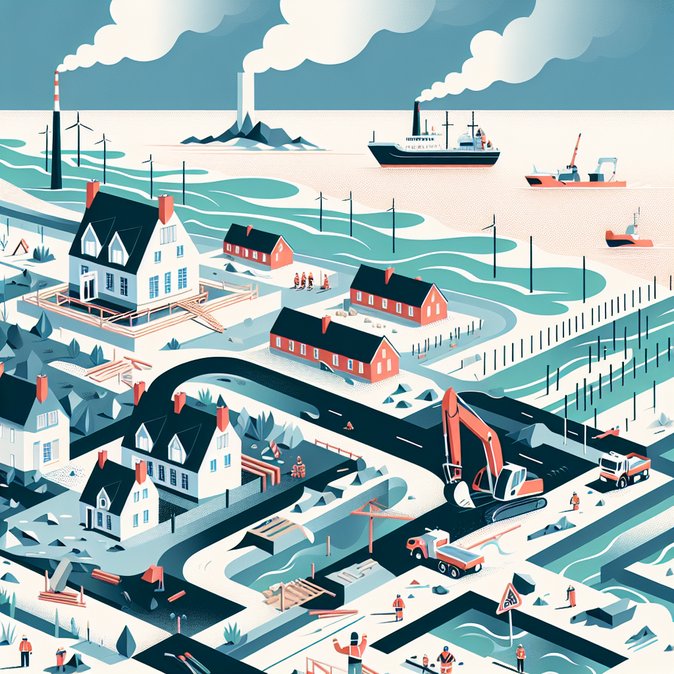
Residents of Miquelon, a village in France’s overseas collectivity of Saint-Pierre-and-Miquelon off Canada’s eastern coast, have voted to relocate inland as rising seas and stronger Atlantic storms threaten to submerge their low-lying homes. The Guardian reports that the decision, confirmed on 28 October 2025, marks the first climate-driven community move under French jurisdiction.
Miquelon sits barely two metres above sea level; recent storms have accelerated coastal erosion and flooded the only access road to the mainland of Saint-Pierre five times this year. Under the €60-million plan, France’s Overseas Ministry will finance new housing on a hill 40 metres above the current site, as well as a harbour relocation and upgraded fibre-optic links to ensure business continuity for the island’s fishing and tourism sectors.
While the population is small—just under 600—the relocation presents a logistical test case for French authorities tasked with protecting 2.6 million citizens living in overseas territories vulnerable to climate change. Engineers from the Ministry for Ecological Transition say the project will trial modular, low-carbon housing that can be assembled within three days, a model that could scale to coastal mainland communes.
For employers with assignees in France’s overseas departments and collectivities, the move highlights the need to integrate climate-risk assessments into assignment planning. Insurance brokers have already signalled higher premiums for property and business-interruption coverage in the region. Mobility managers should review hardship allowances and evacuation protocols for staff posted to French territories.
The relocation also has immigration-law implications: third-country nationals working in Miquelon will need to re-file residence-registration documents because their commune of residence is a legal element of French titre de séjour cards. Prefectural authorities have promised an expedited process once the new village is habitable, expected by 2028.
Miquelon sits barely two metres above sea level; recent storms have accelerated coastal erosion and flooded the only access road to the mainland of Saint-Pierre five times this year. Under the €60-million plan, France’s Overseas Ministry will finance new housing on a hill 40 metres above the current site, as well as a harbour relocation and upgraded fibre-optic links to ensure business continuity for the island’s fishing and tourism sectors.
While the population is small—just under 600—the relocation presents a logistical test case for French authorities tasked with protecting 2.6 million citizens living in overseas territories vulnerable to climate change. Engineers from the Ministry for Ecological Transition say the project will trial modular, low-carbon housing that can be assembled within three days, a model that could scale to coastal mainland communes.
For employers with assignees in France’s overseas departments and collectivities, the move highlights the need to integrate climate-risk assessments into assignment planning. Insurance brokers have already signalled higher premiums for property and business-interruption coverage in the region. Mobility managers should review hardship allowances and evacuation protocols for staff posted to French territories.
The relocation also has immigration-law implications: third-country nationals working in Miquelon will need to re-file residence-registration documents because their commune of residence is a legal element of French titre de séjour cards. Prefectural authorities have promised an expedited process once the new village is habitable, expected by 2028.





